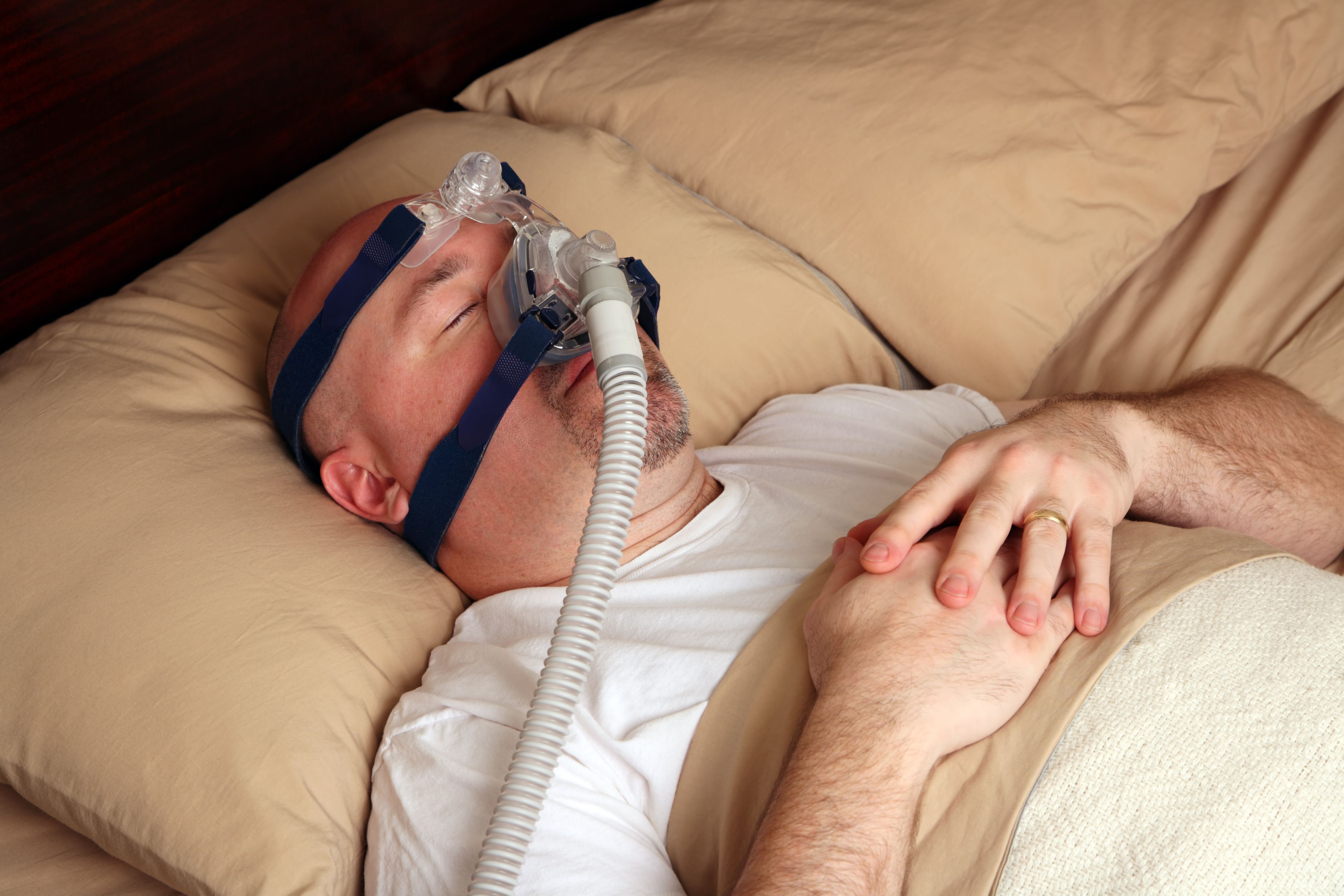Article
Study Shows Association Between Sleep Apnea, Lower Brain Volume
Author(s):
Having more severe sleep apneas was associated with having lower brain volume in the medial temporal lobe area of the brain, which could suggest loss of brain cells.
New research published by Neurology has found an association between sleep apnea and lower brain volume, suggesting that those with severe sleep apnea could have lower brain volume in the medial temporal lobe area.
Credit: auremar - stock.adobe.com

Earlier research has demonstrated that sleep apnea is related to an increased risk of dementia, but investigators did not previously know whether sleep apnea had any links with brain volume. In their new study, investigators compared individuals with amyloid plaques in the brain but no memory problems with individuals who have no amyloid plaques. Amyloid plaques are an early sign of Alzheimer disease.
“We found that people with amyloid plaques who had more severe sleep apneas also were more likely to have lower volumes in the medial temporal lobe area of the brain, including the hippocampus, which plays a role in memory and Alzheimer disease,” said study author Geraldine Rauchs, PhD, in a press release. “The people who did not have amyloid plaques did not have this lower brain volume, even if they had severe sleep apneas.”
The study included 122 individuals with an average age of 69 years who did not have memory problems. A total of 26 participants had amyloid plaques in their brains. Subjects underwent brain scans, took tests of their memory, and had an overnight sleep study done in their homes. The memory tests were repeated after an average of 21 months.
Among those with amyloid plaques, having more severe sleep apneas was associated with having lower brain volume in the medial temporal lobe area of the brain, which could suggest loss of brain cells. Although this does not prove that sleep apnea causes lower brain volume, the connection was notably not found in those who did not have amyloid plaques.
“Our results suggest that some people may be more vulnerable to the adverse effects of sleep apnea,” Rauchs said in the press release. “People who are in the very early stages of the Alzheimer continuum showed a specific vulnerability to sleep apneas. Further studies should look at whether treating sleep-disordered breathing could potentially improve cognition and prevent or delay neurodegeneration.”
Among all participants, lower volumes in the hippocampus at the beginning of the study were associated with lower scores on a test of episodic memory at the end of the study. There were no associations between sleep apneas at the beginning of the study and memory scores at the end.
The investigators noted that the same version of the verbal learning test was administered at the start and at the end of the study, so it is possible that some memory decline may have been minimized due to familiarity with the test. The study was supported by the European Union’s Horizon 2020 Research and Innovation Program, Inserm, Region Normandy, and the MMA Corporate Foundation of Entrepreneurs of the Future.
REFERENCE
What is the relationship between sleep apnea and brain volume? News release. EurekAlert. May 31, 2023. Accessed June 7, 2023. https://www.eurekalert.org/news-releases/990693
Newsletter
Stay informed on drug updates, treatment guidelines, and pharmacy practice trends—subscribe to Pharmacy Times for weekly clinical insights.





